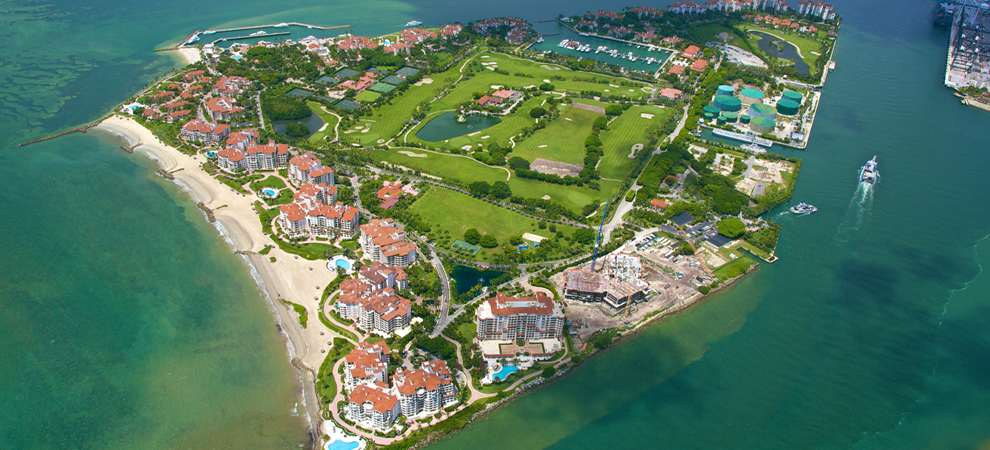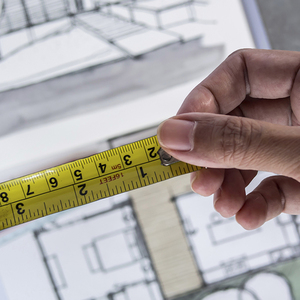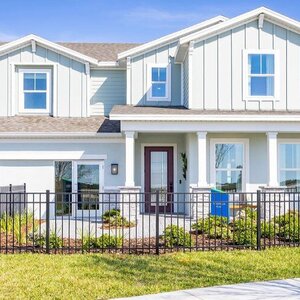The WPJ
THE WORLD PROPERTY JOURNALReal Estate Facts Not Fiction
Residential Real Estate News

Greater Miami Area Home, Condo Prices Rise 5 Percent Annually in June
Residential News » Miami Edition | By Michael Gerrity | July 23, 2020 9:41 AM ET
Driven by strong demand and limited supply
The Miami Association of Realtors is reporting this week that Miami-Dade County median home prices increased year-over-year in June 2020 as home sales continued trending upward despite the global COVID-19 situation.
New pending home sales in June are up double digits year-over-year. Pending sales is a future indicator of closings one to two months out. New pending sales for Miami single-family homes increased 33.8% year-over-year to 1,820. New pending sales for condos increased 12.9% in June to 1,504.
"The Miami-Dade real estate market continues a robust recovery evidenced by continuing surging pending sales and increasing market activity," MIAMI Chairman of the Board Jorge L. Guerra Jr. said. "Historically low mortgage rates, virtual tools and services, and pent-up demand have many buyers continuing their home buying process, which is generating strong demand from local and out-of-state buyers, particularly those in high tax and high-density areas."
Pending sales began surging in mid-April and are stronger than they were before the COVID-19 stay home orders. Home sales, however, are taking longer to close. Time to contract for Miami single-family homes increased 28.6% year-over-year in June, from 49 days to 63 days. Social distancing and shelter-in-place orders in some cases are delaying the homebuying process closing--including home inspections, appraisals and walk throughs.
Mortgage applications, another indicator of future sales, are on the rise in South Florida and nationally, as the Miami mega region continues to see additional homebuying interest from the Northeast. The Mortgage Bankers Association (MBA) reported that mortgage applications rose by 5.1% week over week for the week ending July 10.
The COVID-19 situation has accelerated the trend of homebuyers from New York and cold weather and tax-burdened Northeastern states searching and purchasing homes in South Florida.
Before the COVID-19 situation, the Miami-Dade market was exceptionally strong. Miami real estate had record low delinquencies, no subprime mortgage crisis, strong demand/low supply, low interest rates, strong population growth, demand from foreign buyers and tax refugees from tax burdened states, high consumer confidence and a strong job market.
103 Consecutive Months of Price Appreciation in Miami
Strong demand coupled with limited supply continue to drive price appreciation in Miami-Dade.
Miami-Dade County single-family home prices increased 5% year-over-year in June 2020, increasing from $370,000 to $388,500. Miami single-family home prices have risen for 103 consecutive months, a streak of 8.5-plus years. Existing condo prices increased 4.8% year-over-year, from $250,000 to $262,000. Condo prices have increased or stayed even in 105 of the last 109 months.
Miami, where the median price is still comparable to 2007 figures, remains a bargain compared to other global cities. In Miami, $1 million can net homebuyers 93 square meters of prime property, according to Knight Frank's 2019 The Wealth Report. Monaco (16 square meters), Hong Kong (22), New York (31), Los Angeles (36) and others offer significantly less prime land for $1 million.
Miami Total Home Sales Decrease
Miami total home sales decreased 22.3% year-over-year in June 2020, from 2,436 to 1,893. Miami single-family home sales decreased 11.8% year-over-year in June 2020, from 1,234 to 1,089. Miami existing condo transactions declined 33.1% year-over-year in June 2020, from 1,202 to 804.
Dollar Volume Decreases
Single-family home dollar volume decreased 0.5% year-over-year, from $661.7million to $658.5 million. Condo dollar volume decreased 29.4% year-over-year, from $467.5 million to $330.2 million.
According to Freddie Mac, the average commitment rate for a 30-year, conventional, fixed-rate mortgage decreased to 3.16% in June, down from 3.23% in May. The average commitment rate across all of 2019 was 3.94%.
Lack of access to mortgage loans continues to inhibit further growth of the existing condominium market. Of the 9,307 condominium buildings in Miami-Dade and Broward counties, only 13 are approved for Federal Housing Administration loans, down from 29 last year, according to Florida Department of Business and Professional Regulation and FHA.
A new condo approval process is expected to increase sales. The new guidance, which went into effect in October 2019, extends certifications from two years to three, allows for single-unit mortgage approvals, provides more flexibility with owner/occupancy ratios, and increases the allowable number of FHA loans in a single project. The changes, many of which MIAMI and NAR has championed, are expected to generate increased homeownership opportunities.
Miami Distressed Sales Stay Low, Reflecting Healthy Market
Only 5% of all closed residential sales in Miami were distressed last month, including REO (bank-owned properties) and short sales, compared to 6.6% in June 2020. In 2009, distressed sales comprised 70% of Miami sales.
Total Miami distressed sales decreased 40.6%, from 160 to 95.
Short sales and REOs accounted for 1.4% and 3.6% year-over-year, respectively, of total Miami sales in June 2020. Short sale transactions decreased 3.7% year-over-year while REOs decreased 48.1%.
Nationally, distressed sales represented 3% of sales in June, about even with May but up from 2% in June 2019.
Miami Real Estate Selling Close to List Price
The median percent of original list price received for single-family homes was 95.9% in June up 0.3% from 95.6% last year. The median percent of original list price received for existing condominiums was 92.9%, down 1% from 93.8% last year.
The median number of days between listing and contract dates for Miami single-family home sales was 63 days, a 28.6% increase from 49 days last year. The median number of days between the listing date and closing date for condos was 87 days, a 13% decrease from 77 days.
The median time to sale for single-family homes was 107 days, a 10.3% increase from 97 days last year. The median number of days to sale for condos was 129 days, a 9.3% increase from 118 days
Miami's Cash Buyers Top National Figure
Miami cash transactions comprised 25.9% of June 2020 total closed sales, compared to 31.9% last year. The national figure for cash buyers is 16%.
Miami's high percentage of cash sales reflects South Florida's ability to attract a diverse number of international homebuyers, who tend to purchase properties in all cash.
Condominiums comprise a large portion of Miami's cash purchases as 38.6% of condo closings were made in cash in June 2020 compared to 16.7% of single-family home sales.
Seller's Market for Single-Family Homes, Buyer's Market for Condos
Inventory of single-family homes decreased 25.6% in June from 6,623 active listings last year to 4,929 last month. Condominium inventory decreased 6.8% to 14,433 from 15,488 listings during the same period in 2019.
Months supply of inventory for single-family homes decreased 22.6% to 4.8 months, which indicates a seller's market. Inventory for existing condominiums increased 4.5% to 14 months, which indicates a buyer's market. A balanced market between buyers and sellers offers between six- and nine-months supply.
Months supply of inventory is down since July 2019 for single-family and since March 2019 for condos, reflecting strong demand.
Total active listings at the end of June decreased 12.4% year-over-year, from 22,111 to 19,362. Active listings remain about 60% below 2008 levels when sales bottomed.
New listings of Miami single-family homes decreased 8.2% to 1,470 from 1,601. New listings of condominiums increased 16.1%, from 1,920 to 2,230.
Inventory of active listings has decreased the last 11 months for single-family homes.
Sign Up Free | The WPJ Weekly Newsletter
Relevant real estate news.
Actionable market intelligence.
Right to your inbox every week.
Real Estate Listings Showcase
Related News Stories
Residential Real Estate Headlines
- Las Vegas Area Home Prices Uptick 4.3 Percent Annually in March
- Single-Family Rent Growth in U.S. Trends Upward in 2025
- U.S. Mortgage Rates Tick Down Post Trump Tariffs Commencement
- President Trump's 'Liberation Day' Tariffs Potential Impact on the U.S. Housing and Mortgage Markets
- Baby Boomers Biggest Cohort of U.S. Home Buyers in 2025 as Millennials Decline
- U.S. Monthly Housing Payments Hit Record High in 2025
- U.S. Pending Home Sales Uptick in February
- Global Prime Residential Rent Slowdown Continued in Late 2024
- Ireland Home Price Inflation Hits 8 Year High in Early 2025
- Existing Home Sales in America Uptick in February
- Great Miami Area Residential Sales Decline 15 Percent Annually in February
- Mortgage Rates Uptick in Mid-March, Ending 9-Week Decline in U.S.
- World Property Ventures Builds the Future of Real Estate with New Funding Round
- U.S. Builder Sentiment Declines Amid Economic Uncertainty and Rising Costs
- Black Homeownership Rates in U.S. Enjoy Largest Annual Increase of All Racial Groups
- Wealthy Renters Are Taking Over More of the U.S. Rental Market
- If U.S. Congress Does Not Extend NFIP Soon, Thousands of Daily Home Closings Impacted
- U.S. Mortgage Applications Spike 11 Percent in Early March
- Greater Palm Beach Area Residential Sales Rise in Early 2025
- New Apartments in U.S. Are Leasing at Slowest Pace on Record
- U.S. Mortgage Rates Drop to 4 Month Low in March
- Overall U.S. Mortgage Delinquency Rates Dip in December
- New Tariffs on Canada, Mexico to Impact U.S. Homebuilder Input Costs
- Monaco's Property Market: A Tale of Two Cities
- U.S. Home Purchase Cancellations Surge, 1 in 7 Sales Getting Canceled
- U.S. Pending Home Sales Hit Historic Low in Early 2025
- Greater Miami Area Residential Sales Dip in January
- Governor DeSantis Supports Ending Property Taxes in Florida
- WPV Aims to Become the Berkshire Hathaway of Real Estate Tech
- U.S. Home Sales Slump Continues in January
- Average Americans Spend 38 Percent of Monthly Income on Mortgage Payments
- Switzerland's Safe-Haven Appeal Grows with World's Wealthy Homebuyers
- U.S. Builder Confidence Rapidly Declines in February
- Las Vegas Home Sales Rise 6.7 Percent Annually in January, Condo Sales Dip
- Homebuyer Demand in America Drops to 5-Year Low in Early 2025
- Ownership More Affordable Than Renting in Most U.S. Markets
- The World's First Global Listings Service Launches, Called a GLS
- Home Prices Continue to Rise in 89 Percent of U.S. Metros in Late 2024
- Global Luxury Residential Prices Showed Gradual Improvement in Late 2024
- U.S. Construction Hiring Rate Drops to Lowest Levels in 5 Years
Reader Poll
Marketplace Links
This website uses cookies to improve user experience. By using our website you consent in accordance with our Cookie Policy. Read More





